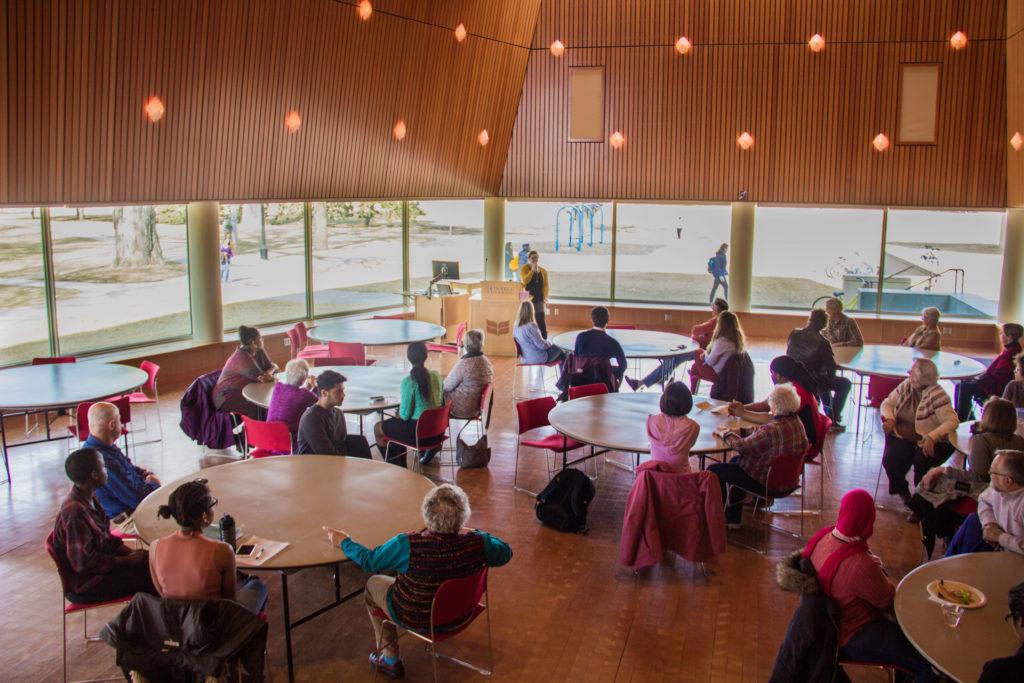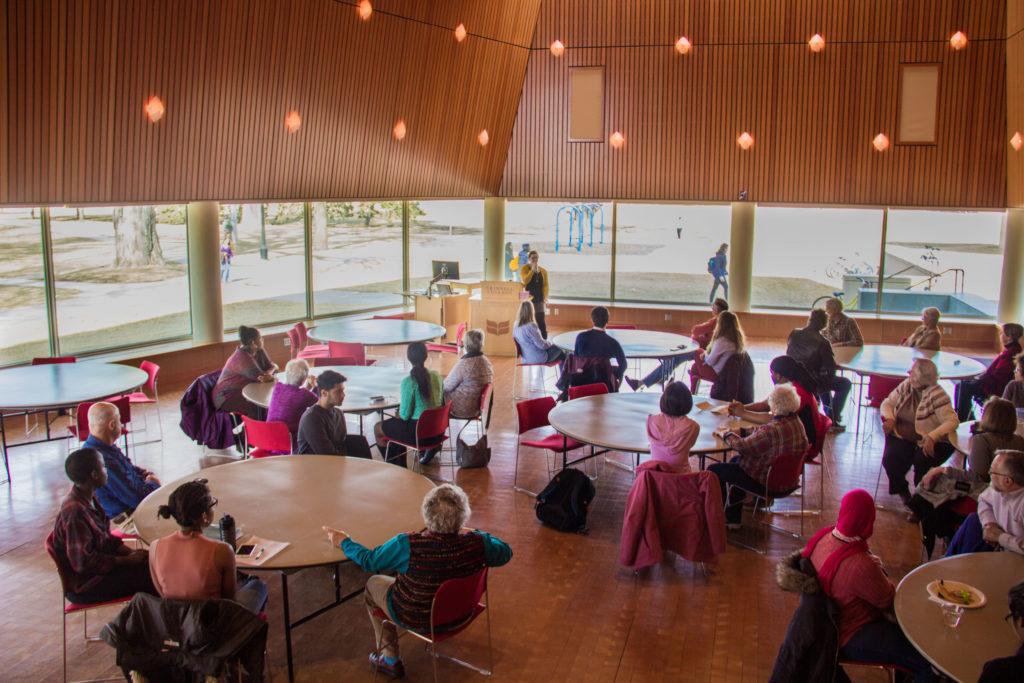
In the current political climate, issues of safety and personal well-being have come up repeatedly in campus conversation. In this context, residents of the Mayflower Community, a retirement home situated approximately a mile from the College, expressed interest in meeting with Grinnell students and discussing conflict, difference and threats towards immigrants and refugees. Subsequently, a lunch was organized on Thursday in JRC 101, where students from the Multicultural Leadership Council, International Student Organization (ISO) and Posse had the chance to exchange their perspectives and stories with Mayflower visitors over lunch.
“Due to many of our students feeling unsafe on campus and in the community of Grinnell (because of the current state of our country), we are having a (last minute) lunch with some residents of the Mayflower,” organizer Katy Zart wrote in an email to The S&B. “The residents have concerns and want to let students know that they want them to feel safe in Grinnell, and want to meet some of the students and offer their support/words of encouragement.”
In support of those efforts, an estimated 15 Mayflower residents, including some retired professors and college alumni, met with approximately 20 students who signed up on a first-come, first-serve basis, faculty and staff. Jonathan Rebelsky ’20, a Grinnell local, said that the chance to meet with members of a community whom he was familiar with through high school gatherings was a great opportunity to meet new people and hang out with old friends.
“When I was growing up, interacting with people at Mayflower has been unanimously positive,” Rebelsky said. “They would sometimes just bring Mayflower people to just speak to our [high school] classes.”
Rebelsky said that the engagement provided a valuable learning opportunity about the history of the town and the College, and how they’ve gotten along.
“It’s really a problem when the town and the College feel like they’re different identities. The College is part of the town,” Rebelsky said.
Rebelsky added that he participated in discussions examining the advancements that American society has made, on issues such as rights for transgender people and interracial marriage. He also learned about the history of self-governance at the College, and how that’s changed as well.
“One thing I learned … was that self-gov hasn’t always been a thing at Grinnell. A person who graduated in 1950s said that it hasn’t really been a thing,” he noted.
As a representative of the Office for Intercultural Affairs and ISO, Takahiro Omura ’17 said that he thought the meeting with Mayflower residents was a good step towards building bridges, feeling appreciated, and receiving reassurance from the community as an international student.
“At the ISO, we thought we needed to reach out to the community more as a student body, given this political climate. I thought it was a perfect opportunity to go meet some of the residents and talk about these current issues that both the community and the students have been facing,” Omura said.
Omura added that members of the community had participated in marches in 1964 for civil rights, which helped him feel more historical connections to the town as both a student and as a resident. However, he added that the responsibility of fostering a sense of inclusion should be a two-way street.
“It was interesting because the residents were talking about how some community residents might not feel welcome on campus. There’s no activity not welcoming them, but there’s some atmosphere preventing community residents from coming and participating in campus events,” Omura recalled. “So it made more sense for students to reach out to the community, to make it more of a two-way interaction.”
The College’s purchases of more properties around town was cast in a positive light in the conversations that Omura had as well. The Mayflower residents saw it as a first step in increasing interactions between the College and the community.
“Students would go downtown more often, whatever’s going to be built there, and so the community [would be] engaged with students more,” Omura said. “I think as a Grinnell College student, you are part of the Grinnell community as a whole. I feel that it is both interesting and our responsibility to really interact with the residents in the community, to get to know them as well as they get to know us.”































































